Singapore at the Crossroads
As the ‘Little Red Dot’ turns 60 in 2025, distinguished thought leaders from the National University of Singapore (NUS) community reflect on factors that have contributed to the nation’s success and ponder how to navigate challenges for the next 60 years.
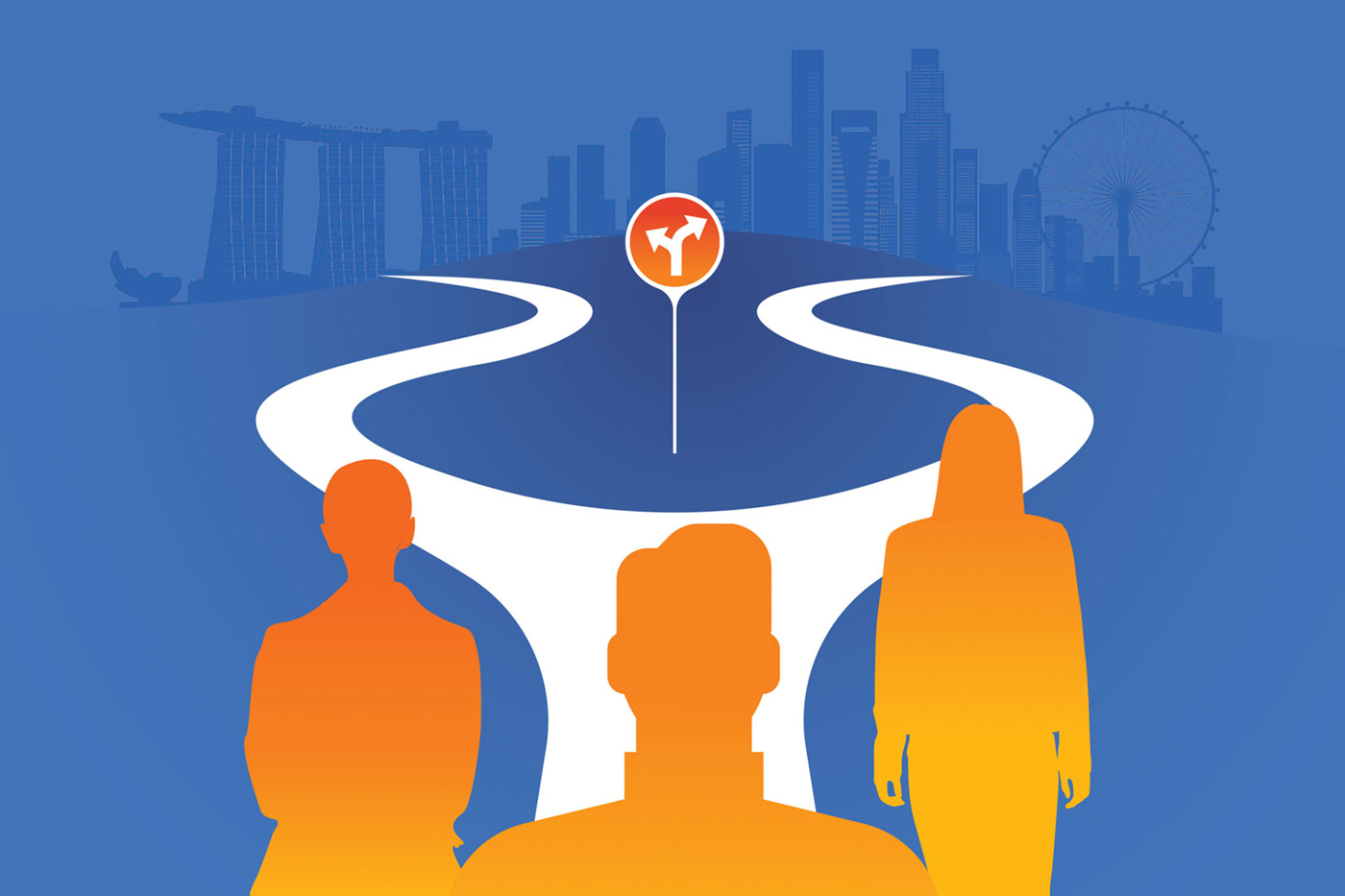
Singapore is the most successful society since the beginning of human history,” proclaimed Mr Kishore Mahbubani (Arts & Social Sciences ’71), Distinguished Fellow at the NUS Asia Research Institute. Speaking at the panel discussion, “Legends in the Room: Turning 60 – Singapore at the Crossroads”, during NUS Homecoming on 21 September 2024, he noted, “No other nation has improved the standards of living for its people faster and more comprehensively.”
Indeed, the Singapore Story is built upon unique circumstances. A speck of an island with scant natural resources, it was ‘forced’ into independence following separation from Malaysia in 1965. The tiny state then had to quickly find its feet in a region rife with conflict between retreating colonial powers and insurgent nationalist groups with differing ideologies — all against a larger backdrop of the Cold War.
Despite the factors against it, Singapore emerged as a peaceful nation under the stewardship of founding Prime Minister Mr Lee Kuan Yew (HonLLD ’13) and Former Deputy Prime Ministers Mr S. Rajaratnam and Dr Goh Keng Swee (Arts ’39). “As a predominantly Chinese city-state in a region where our neighbours distrusted the ethnic Chinese, the natural destiny of Singapore should have been that of a shrinking geopolitical space,” said Mr Mahbubani. “Yet our geopolitical space within Southeast Asia today is enormous, and the amount of respect and trust our neighbours have in us is exceptional and unusual. This is the result of the exceptional track record of our founding fathers.”
Beyond its economic and domestic progress, Singapore’s reputation and sustained success are also built on the foundational values instilled in the country’s key agencies by its pioneering leaders. These include incorruptibility, transparency and a recognition of the need to plan for the future, alongside a steadfast adherence to the principles of meritocracy, pragmatism and honesty, Mr Mahbubani noted. Yet he cautioned: “While Singapore has been exceptional on many counts, one of the lessons of history is that exceptionality doesn’t last.”
 Singapore has built a stellar reputation and sustained success, but Mr Kishore Mahbubani cautioned that such exceptionality is not guaranteed to last.
Singapore has built a stellar reputation and sustained success, but Mr Kishore Mahbubani cautioned that such exceptionality is not guaranteed to last.
FROM ASIA TO THE WORLD
To ‘crystal ball’ what Singapore will look like in the next 60 years requires a broader view of history. “The last 60 years stand out, but it’s only a small window if you put it on a 700-year timeframe,” noted fellow panellist Professor Tan Tai Yong (Arts & Social Sciences ’86, MA ’89), Chairman of the NUS Institute of South Asian Studies and President of the Singapore University of Social Sciences.
The co-author of landmark publication Seven Hundred Years: A History of Singapore highlighted that the island had always been part of a larger confederation before its independence — whether as a 13th-century trading port founded by Srivijayan prince Sang Nila Utama, a Crown Colony under the British Empire, or part of the Federation of Malaysia. Today, Singapore stands as a member of the Association of Southeast Asian Nations (ASEAN), the Asia-Pacific Economic Cooperation (APEC), and the United Nations (UN). “Looking at the extended history of how the island has changed over the years allows us to find the core motif of Singapore’s identity beyond that of a nation-state,” Prof Tan told The AlumNUS. “We are small no matter how you cut it, but we have also always had an extensive reach because of our connectivity and openness.”
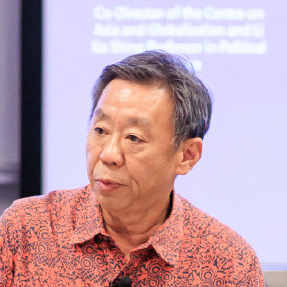
Looking at the extended history of how the island has changed over the years allows us to find the core motif of Singapore’s identity beyond that of a nation-state. We are small, but we have also always had an extensive reach because of our connectivity and openness.
Professor Tan Tai Yong, Chairman, NUS Institute of South Asian Studies, and President, Singapore University of Social Sciences
Singapore’s alliance with countries within the region will continue to be critical in the next 60 years as it navigates new geopolitical challenges. “In 2000, Japan was the world’s largest economy after the United States, and eight times bigger than ASEAN. Now, Japan is only 1.3 times bigger than ASEAN, and by 2030, ASEAN will supersede it,” he projected. With trade between Singapore and ASEAN countries on a general upward trend, amounting to S$295.6 billion in 2023, the Singapore economy grows with ASEAN. In this context, the regional bloc not only boosts the country’s trade connectivity but also strengthens its standing as a neutral party on the wider geopolitical landscape. “Singaporeans must be aware that ASEAN gives us a buffer,” stressed Mr Mahbubani, speaking to The
AlumNUS. “Within the 10 countries, there is a consensus that we will not take part in the contest between the US and China — Singapore is not alone.”
Maintaining this neutrality becomes increasingly important for Singapore to move forward amid escalating conflicts around the world, and rising tensions between the US and China, highlighted Dr Selina Ho (Arts & Social Sciences ’94), Assistant Professor in International Affairs and Co-Director of the Centre on Asia and Globalisation at the Lee Kuan Yew School of Public Policy (LKYSPP).
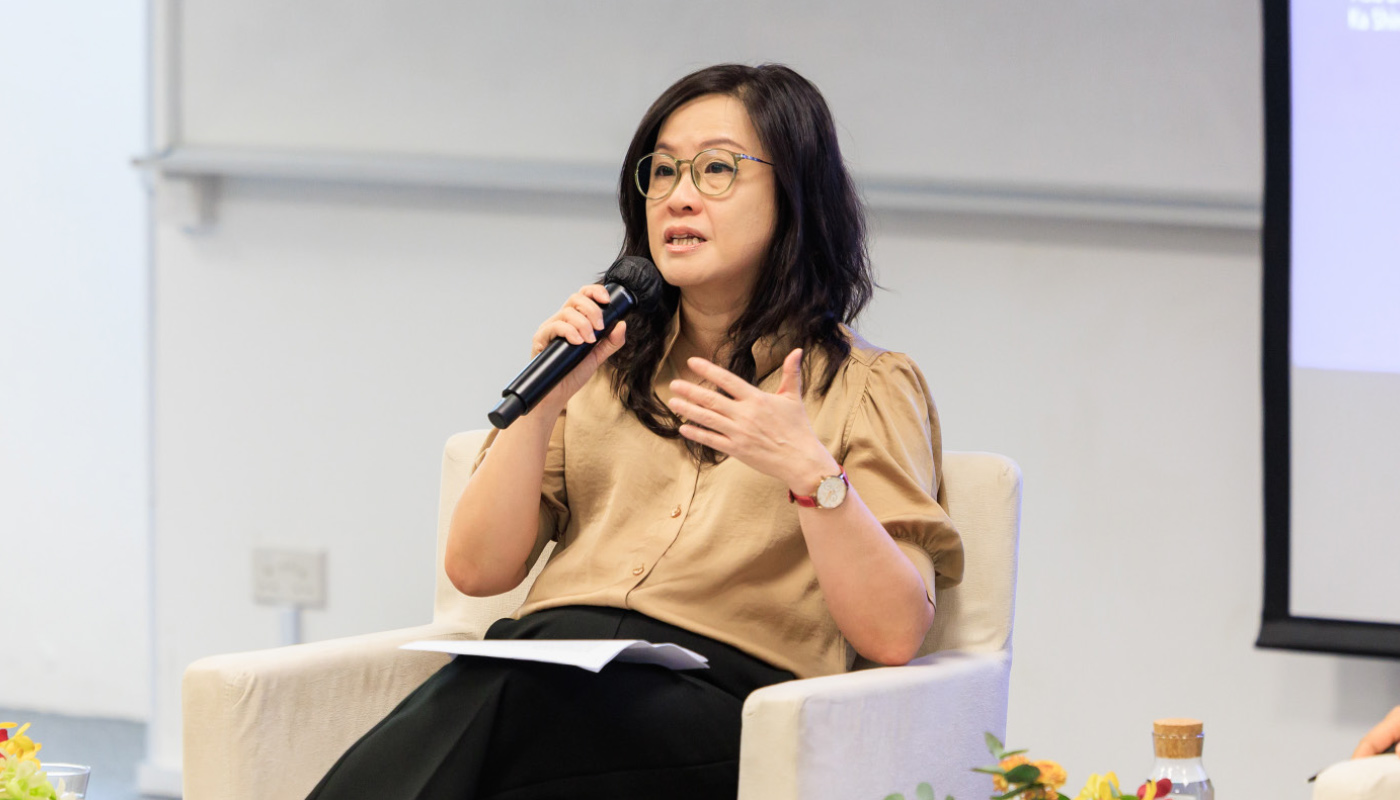 Dr Selina Ho highlighted the importance of neutrality, which boosts Singapore's profile on the world stage.
Dr Selina Ho highlighted the importance of neutrality, which boosts Singapore's profile on the world stage.
Dr Ho shared that Singapore’s foreign policy “is guided by principles important to small countries: an independent foreign policy, being friends with all, growing economically so that we stay relevant to others, being an honest broker, and upholding international law”. She was speaking at the Alumni Reunion@BTC dialogue session, “How Can Singapore Navigate the Continuing Storms of Geopolitical Rivalry?” on 26 October 2024, where she added that Singapore’s relations with both the US and China are substantive and well-rounded, with high-level exchanges, economic and security cooperation, and people-to-people ties. “It is an even-handed approach. For example, when we renewed our Memorandum of Understanding allowing US armed forces to use our air and naval facilities in September 2019, we also upgraded our defence agreement with China in October the same year,” she said.
Her observations echo the findings of Professor Khong Yuen Foong, Co-Director of the Centre on Asia and Globalisation and Li Ka Shing Professor of Political Science at LKYSPP. His ongoing research project,
The Anatomy of Choice: Southeast Asia between the Superpowers, tracks the strategic alignments among ASEAN countries. Looking at Singapore’s neutral stance from 1995 to 2021, Prof Khong proposes that Singapore could serve as a successful hedger within the region. “We have done remarkably well straddling the two superpowers in a truly middling position… By successfully positioning ourselves between China and the US, we can make hay while the sun shines.”
 Prof Khong Yuen Foong stressed why it is vital for Singapore to take a 'middle position' in the ongoing US-China rivalry.
Prof Khong Yuen Foong stressed why it is vital for Singapore to take a 'middle position' in the ongoing US-China rivalry.
NAVIGATING The NEW GEOPOLITICAL ORDER
However, Mr Mahbubani — who served as Singapore’s Permanent Representative to the UN and was President of the UN Security Council — stressed that the rules of engagement for the next 60 years will change.
Citing the US’ weak response to the Israeli-Palestinian conflict, its disregard for the UN’s resolution against Israeli occupation, and its blocking of the appointment of new judges to the World Trade Organization's (WTO) Appellate Body (thus paralysing the organisation), he opined that the world is moving from “a functional to a dysfunctional Western-led world order”.
“All our policies are based on the assumption that the leading power in the world will act responsibly — but what do we do when the responsible stakeholder becomes irresponsible? In the past, we might say, ‘the US is losing its way, let’s turn to the EU’. But while the EU is still a significant economic power, geopolitically, it has become a dwarf… Singapore has to start thinking about how to manage a very different world order.”
![]()
All our policies are based on the assumption that the leading power in the world will act responsibly — but what do we do when the responsible stakeholder becomes irresponsible?
Mr Kishore Mahbubani
Amid a shifting global landscape where traditional security and trade frameworks may no longer be reliable, Singapore could face significant economic challenges, conceded Professor Danny Quah, Dean and Li Ka Shing Professor in Economics at LKYSPP. Speaking at the Alumni Reunion@BTC discussion, Prof Quah stressed that while economic resilience is paramount for small nations like Singapore, complete isolation would be an impractical solution, leading to higher living costs and diminished access to essential goods such as food and technology. Instead, Singapore could bolster its economic security while remaining open to global trade — an essential strategy given its limited resources. The nation can navigate these challenges by embracing multilateralism, ensuring it maintains beneficial relationships with various trading partners without aligning too closely with any single power. This nuanced approach will help Singapore thrive in an increasingly unpredictable world, Prof Quah said, emphasising the importance of strategic choice in global economic engagement.
To navigate this new world order, Prof Quah proposes that Singapore could embrace pathfinder multilateralism, which involves forming flexible coalitions such as the Multi-Party Interim Appeal Arbitration Arrangement (MPIA) that operates under existing WTO frameworks. This approach allows for collaboration on trade and dispute resolution, even in the absence of major players like the US. By championing inclusive agreements and fostering partnerships, Singapore can enhance its economic resilience and maintain a leading role in global trade despite challenges in traditional multilateral institutions.
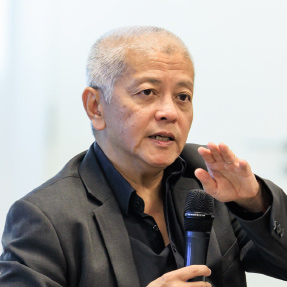
What is it that allows Singapore to navigate this treacherous landscape? Multilateralism. A commitment to peaceful resolution of disputes. A principle that you should be treated as you treat other nations.
Professor Danny Quah, Dean and Li Ka Shing Professor in Economics, LKYSPP
INTEGRAL STRENGTH THROUGH SOCIAL COHESION: THE IDEA OF SINGAPORE
Apart from strengthening its external ties, Singapore also needs to brace for future challenges by strengthening itself from the inside out. The country’s comprehensive Total Defence strategy includes job-seeker allowances and support for lifelong learning and upskilling schemes that allow both the economy and society to weather shocks and disruptions, Prof Quah pointed out. Yet social cohesion could prove to be the biggest challenge for Singapore.
Sharing that the proportion of locally-born Singaporeans is projected to be around 30 per cent in the next 30 to 40 years, Prof Tan stressed that how we identify with and articulate the Singaporean identity needs to change as the country’s social makeup evolves through immigration and inter-racial marriages. Referring back to his perspective on finding Singapore’s core characteristics through the island’s historical evolution, he proposes that the Singaporean identity should go beyond race and religion, to be anchored in the values that have shaped the country. Openness, inclusivity and meritocracy have historically guided Singapore toward progress, and in a time when multiculturalism blurs the lines of distinct racial categories, a collective ethos that transcends individual backgrounds could cultivate a robust identity. The challenge would be to protect these values from eroding.
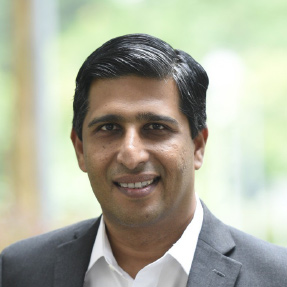
The values that guide how we do things are what make us feel like a Singaporean: meritocracy that protects social equality; multiculturalism that is a fundamental part of our diversity; and respect for law and order, conveyed through our government agencies and policies.
Dr Mathew Mathews, Principal Research Fellow, Institute of Policy Studies (IPS) and Head, IPS Social Lab, LKYSPP
Dr Mathew Mathews (Arts & Social Sciences ’99, MSocSci ’02, PhD ’08), a Principal Research Fellow at the Institute of Policy Studies (IPS) and Head of the IPS Social Lab at LKYSPP, echoed Prof Tan’s point. “The values that guide how we do things are what make us feel like a Singaporean: meritocracy that protects social equality; multiculturalism that is a fundamental part of our diversity; and respect for law and order, conveyed through our government agencies and policies.” However, all these could come under threat — whether in the form of social tensions arising from a widening income gap, or from foreigners who challenge the country’s ways — and, in turn, threaten the cohesion of Singapore society.
“Past research by IPS has suggested that social class — not race or religion — may be the most important fault line in Singapore society,” shared Dr Elvin Ong, Assistant Professor at the NUS Department of Political Science, and a Social Science and Humanities Research Fellow. While Dr Mathews pointed to a robust public education system as an equaliser, bridging the gap between the ‘Haves’ and ‘Have-Nots’, Dr Ong cautioned that technological shifts changing the future of work are likely to exacerbate the problem. “Tech-adjacent workers who could exploit new innovations — such as those in finance or marketing — are likely to see exponential growth in their income. Skilled workers in more labour-intensive professions, unable to leverage new technologies simply by the nature of their work, are likely to see their wages grow more slowly or stagnate.”
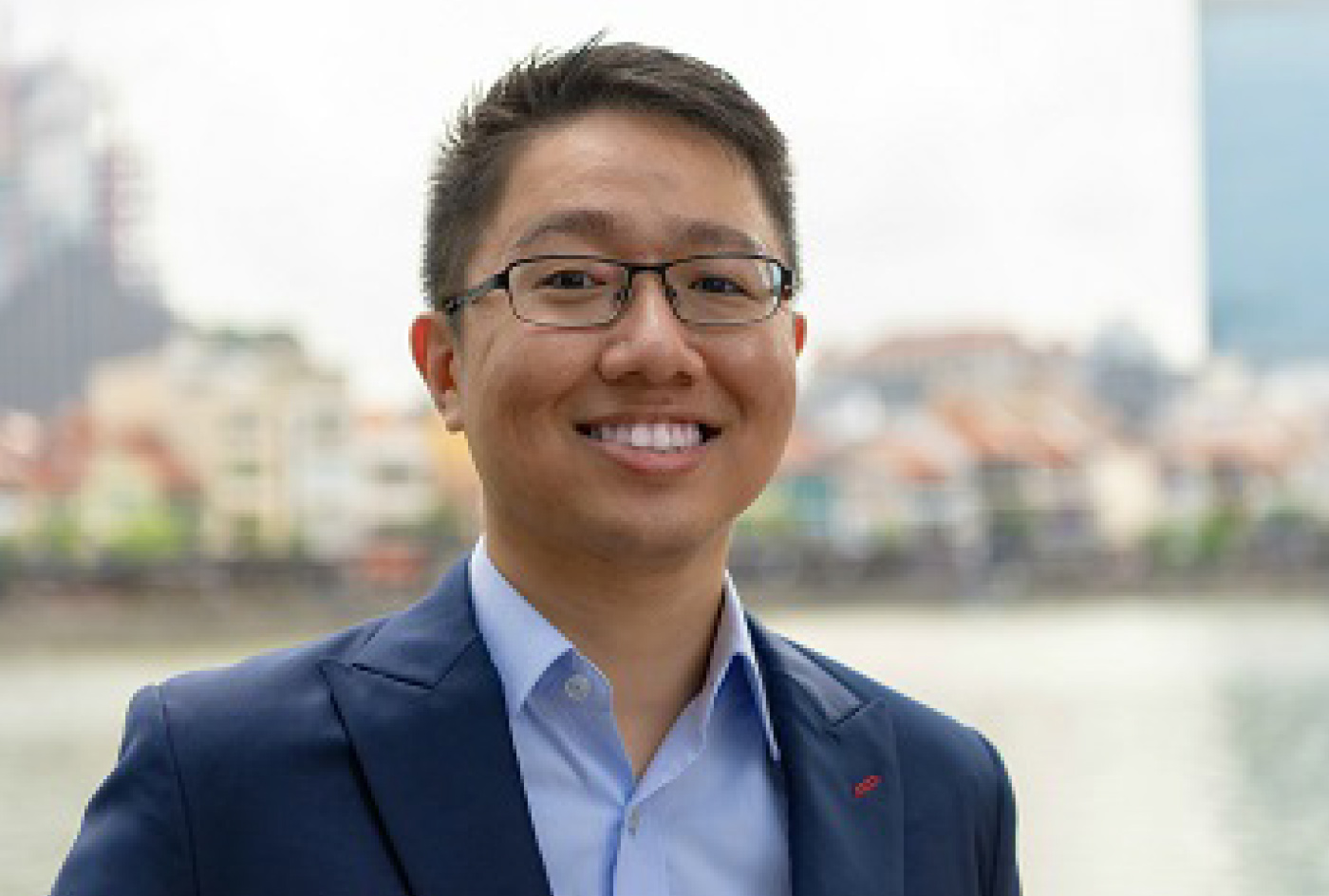 According to Dr Elvin Ong, social class is the biggest cause of division within Singapore society.
According to Dr Elvin Ong, social class is the biggest cause of division within Singapore society.
NATION BUILDING 4.0: WIELDING THE DOUBLE-EDGED SWORD OF TECHNOLOGY
To close the gaps among different segments of the population, Dr Carol Soon (Arts & Social Sciences PhD ’12), Associate Professor at the NUS Department of Communications and New Media, and Vice Chair of Singapore’s Media Literacy Council, proposes a whole-of-society effort focused on helping people harness technology effectively for social and economic mobility.
“Increasingly, we see a need to uplift competencies so that people go beyond being safe consumers of technology to become productive, effective producers of content, so that everyone — regardless of background — can fully and effectively use technology for individual and community good,” said the Adjunct Principal Scientist at the Centre for Advanced Technologies in Online Safety, and member of the Ministry of Culture, Community and Youth’s Co‑Governance Community of Practice.
Importantly, Dr Soon highlighted that Singapore’s diverse society could be susceptible to fissures arising from hate speech and insidious propaganda disseminated online. Waning digital trust could also be a key threat in the future. “The declining trust people have in technology has huge repercussions for the individual and society,” she said. “Much of our interactions happen online, and negative experiences in this space can erode the trust people have among themselves; between users and platforms such as social media apps and networking sites; and between people and institutions, such as in the event of data breaches.” More than a roadblock on the country’s Smart Nation journey, such sentiments could also translate to a general state of distrust, weakening the bonds within community and country.
 Dr Carol Soon believes that technology is key to bridging the gaps between different social groups.
Dr Carol Soon believes that technology is key to bridging the gaps between different social groups.
Yet when put in the right hands, technology can facilitate positive change. “In recent years, we have seen more ground-up initiatives leveraging the connectivity of technology to try to raise the awareness of social issues — be it the plight of gig workers, climate change or raising political literacy, among others.” Dr Soon also noted a greater emphasis placed by the government on supporting ground-led initiatives, underscoring the importance of activating people, the private sector and academia through technology, and, in turn, strengthening social cohesiveness and public trust in institutions.
A GOOD GLOBAL CITIZEN
But the best might have yet to come for Singapore. Mr Mahbubani is of the opinion that Singapore, given its strong multilateral ties and strong multicultural society, has the potential to become the progressive capital of the Asian Century that he foresees. Former diplomat Emeritus Professor Tommy Koh (Law ’61, HonLLD ’22) also believes that Singapore can be “a source of new ideas for ASEAN”, citing the Initiative for ASEAN Integration, launched in 2000 at the Fourth ASEAN Informal Summit in Singapore, with the aim of bridging gaps between ASEAN member countries and enhancing the region’s competitiveness.
Singapore’s reputation as one of the best-planned cities in the world — with a commitment to both liveability and sustainability — also provides a model to others and serves as a strong foundation for its rise on the world stage in the next 60 years. “Singapore takes very seriously the threat of climate change and sea-level rise,” said Prof Koh. “We have committed ourselves to the goal of achieving net zero emissions by 2050. Internationally, we play a positive and facilitative role in negotiations on climate, biodiversity and the oceans.”
However, Prof Koh stressed that, as a small, non-aligned state, Singapore might punch above its weight at international gatherings — but it knows its place when it comes to international relations. “Singapore does not have an agenda to be a peacemaker. However, we are happy to play host to talks between rivals, such as the Wang-Koo talks in 1993, the meeting between China’s leader Xi Jinping and Taiwan’s then-President Ma Ying-jeou in 2015, and the summit between US President Donald Trump and North Korea’s Kim Jong Un in 2018,” commented Prof Koh, who served as the UN Secretary-General’s Special Envoy to make peace between Russia and its three Baltic neighbours, Estonia, Latvia and Lithuania, in 1993.
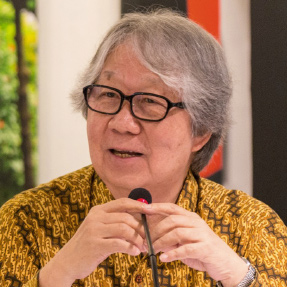
Singapore takes very seriously the threat of climate change and sea-level rise. We have committed ourselves to the goal of achieving net zero emissions by 2050. Internationally, we play a positive and facilitative role in negotiations on climate, biodiversity and the oceans.
Emeritus Professor Tommy Koh
Mr Mahbubani concurred, remarking that the country has always been very active on the global stage, with Prof Koh chairing the UN’s 1982 Conference on the Law of the Sea and the 1992 Rio Earth Summit. Singapore’s former Permanent Representative to the UN, Mr Chew Tai Soo, also founded the Forum of Small States (FOSS) within the UN in 1992. To date, Singapore still serves as Chair of FOSS. In more recent years, Singaporean Mr Daren Tang (Law ’97) has also been appointed Director General of the World Intellectual Property Organization (WIPO), and Singapore Management University professor Winston Chow (Arts & Social Sciences ’02, MSocSci ’05) was elected Co-Chair of Working Group II for the UN’s Intergovernmental Panel on Climate Change (IPCC).
Singapore’s active participation stems not just from a need to protect national interests. It is also rooted in a belief that the country could play the role of a good global citizen. This might sound lofty but could very well be the ‘north star’ for Singapore’s journey ahead. As University Professor Wang Gungwu (Arts ’53, MA ’56, HonDLitt ’22) shared in his concluding statement at NUS Homecoming 2024, “The very idea of a nation-state is essentially very exclusive,” he said. “It is ‘our nation’ against other nations.” Noting that the concept of the nation-state emerged only in the late 18th century, Prof Wang remarked that it has led to the illusion that all nations should be equally sovereign and important. “If every country, big or small, only thinks of its national interest, the world will always be in trouble,” cautioned the 12th S R Nathan Fellow for the Study of Singapore. “We have to think of ourselves as part of humanity, working towards a world where we do not have to fight with one another.”
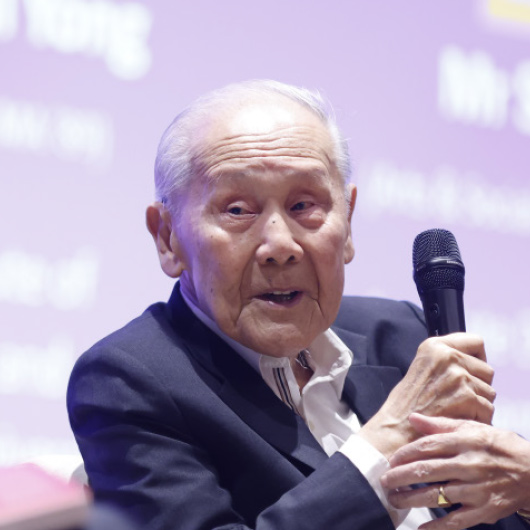
We have to think of ourselves as part of humanity, working towards a world where we do not have to fight with one another.
University Professor Wang Gungwu
Prof Wang highlighted the fact that Singapore’s unique position as both a nation-state and global city is what has saved the country from suffering the fates of other small nation-states. “Singapore has proven and shown our neighbours how we deal with all the different values within our society. Our role is not for each of us to fight for nationalism, but always to think about what we have in common, to make an effort to understand each other’s problems, and share with one another. These lessons become more urgent as the world becomes smaller,” he said. “We can instil in our young to believe that our primary purpose is to serve the world. This is our global responsibility as part of humanity.”
Text by Koh Yuen Lin